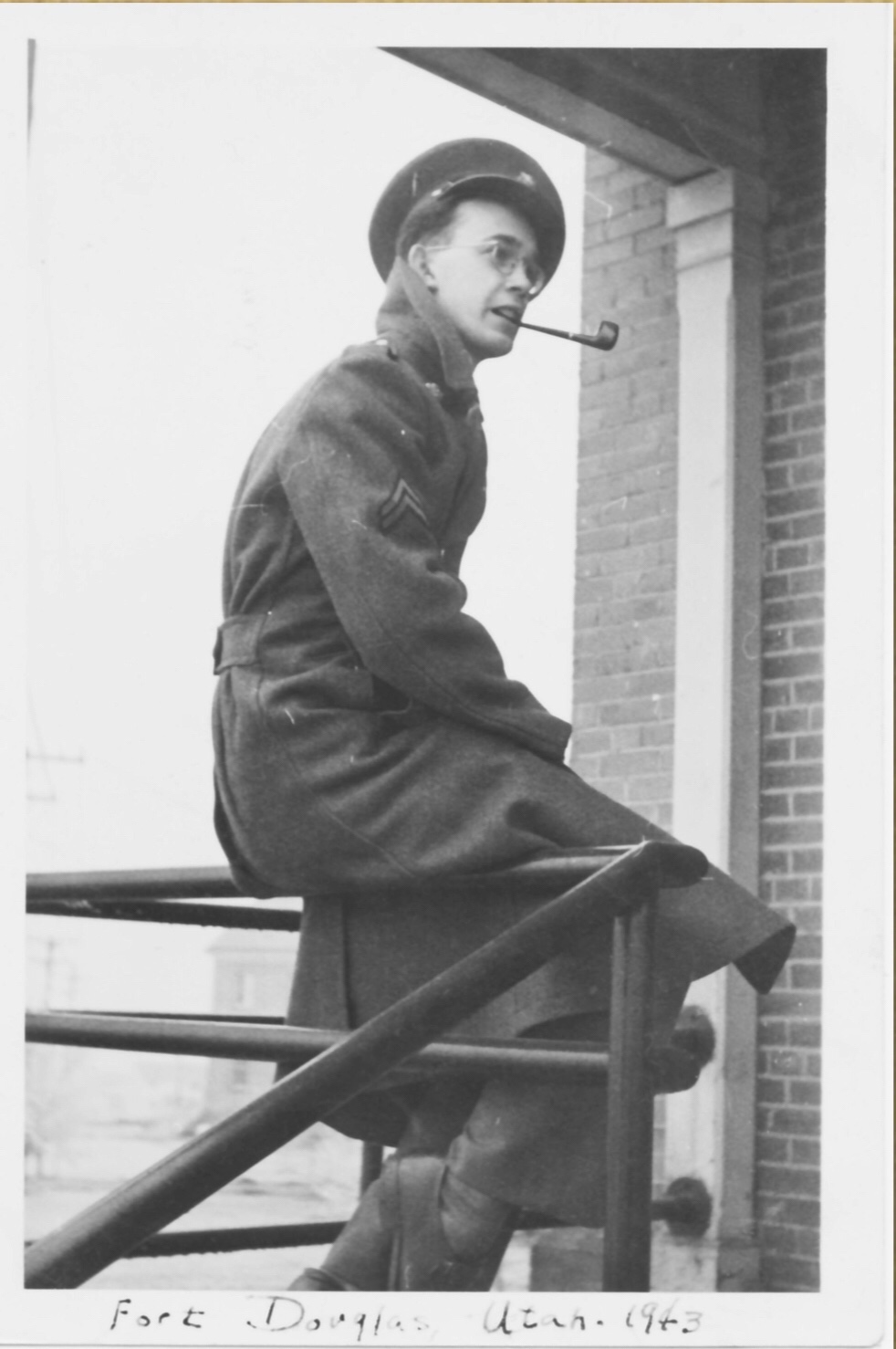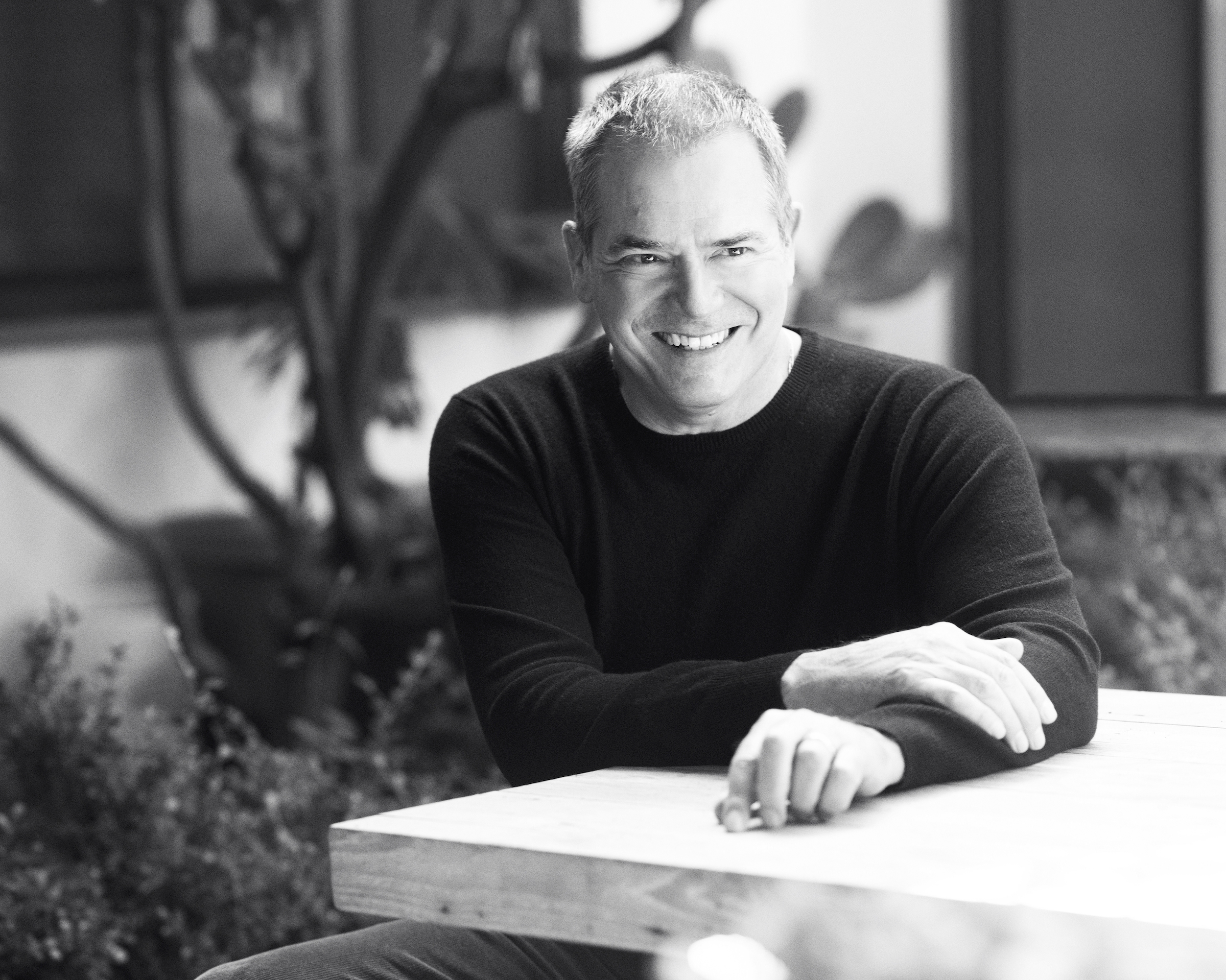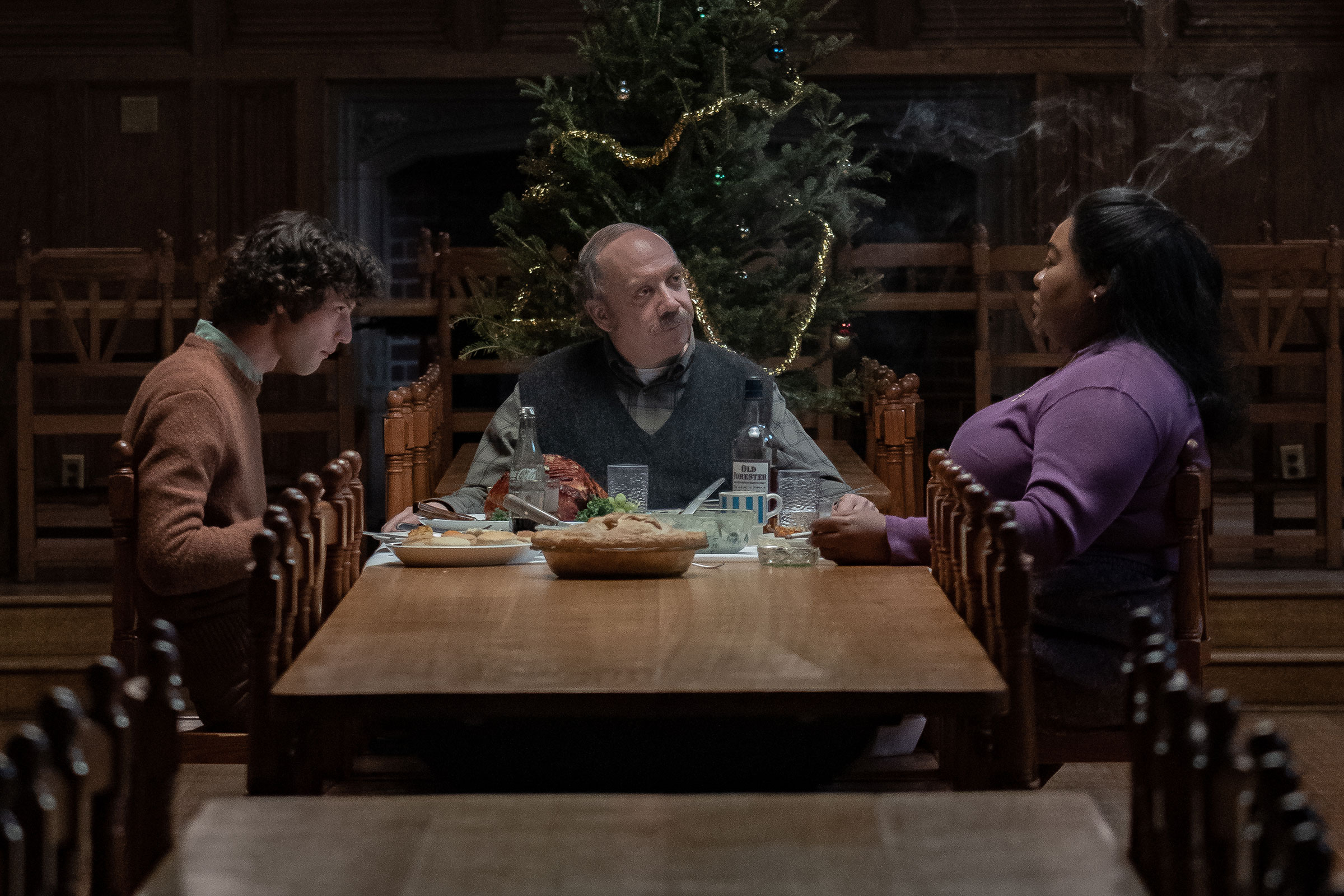
The Holdovers is the story of three fractured people—Paul, Angus, and Mary, played respectively by Paul Giamatti, Dominic Sessa, and Da'Vine Joy Randolph—thrust together in an empty boarding school in the waning days of 1970. But, in reality, those characters were born in 1969. That’s when my parents’ marriage ended.
Actually, “ended” is far too neat a word. My parents’ marriage exploded. I’ll never know the particulars, but here’s the “easy-to-read” version: my dad couldn’t stay, and my mom couldn’t let him go—until she did. And doing so nearly destroyed her. At the time, my father was splitting his time between teaching and shipping out as a merchant seaman. My mother was working as many hours as she could as a registered nurse at Mt. Sinai Hospital in Hartford, Conn. Even with child support, we were always on a razor’s edge, but my mom wanted to preserve some sense of normalcy, so she took the daybreak shift in the ICU, getting up at quarter to four in the morning so she could be home in time to make me dinner when I rolled in from school.
School was a challenge. I was an awkward, scattered, bookish kid with ADHD, so the social dynamics were tough for me in the best of times and just got more challenging in the wake of the marital meltdown. By the time middle school was approaching, I just stopped going. My mom would wake me at dawn, feed me breakfast, and make me promise not to go back to sleep. As soon as she was gone, I’d pass out for another three hours. Then I would put on a Beatles record, climb into the bathtub, and read until the water cooled around me. This continued for a month until the school finally noticed my epic run of truancy. Something had to be done.
Read more: The 35 Most Anticipated Movies of Fall 2023
That “something” came in the form of Earl Cahail. Earl was married to my mother’s older sister, Ann, and they lived on the lower east side of Manhattan. I hazily recall overhearing a hushed phone call centering on “what to do about David” and then, one Saturday morning, Earl was in our driveway, climbing out of his Plymouth Duster, mopping his brow and cursing the 120-mile drive from New York City. From that day forward, it was a drive he would make nearly every weekend over the next decade.

Like my father, Earl left school to serve in World War II. Unlike my father, Earl never went back, odd-jobbing his way around the world in those post-war years, finally ending up as the manager of the United Nations Office of Public Information. Just shy of six feet tall, pot-bellied and bald with jug-handle ears that supported a pair of thick Buddy Holly glasses, Earl was not the Hollywood version of a boyhood hero. He was ten times cooler.
Earl knew everything there was to know about books, music, dogs, chainsaws, shotguns, Chinese food, and profanity. He spoke and swore and shot and cooked like no other person I had ever seen before. He taught me how to swing a hammer and draw a bow. He fed me the classics and the National Lampoon, jazz and rock and roll, in equal measure.
More From TIME
Best of all, he didn’t feel sorry for me. Quite the opposite. He told me I was lucky. Lucky that I had a mother who worked harder than was humanly possible to support me. Lucky that I had a father who—although we were estranged—loved me deeply and worried about my welfare.
Read more: The 100 Best Movies of the Past 10 Decades
Earl hated laziness, so every waking moment we spent together was filled with something useful: chores or study or some form of exercise, usually push-ups, leg-lifts, pull-ups—all of which I would do while he supervised, usually with a Scotch in his hand. Once a month on a Saturday morning, he’d take me down to Wethersfield Cove and row us out into the swift water of the Connecticut River. While we waited for the catfish or alewives to show an interest, he’d tell me about his epic life. He described in vivid detail his years growing up in “genteel poverty,” busting his ass on his family’s rocky stretch of land (he called it a “stump farm”); summers sweated away as a “galley pot walloper” on the Black Ball Ferry line; nights on Saipan, as a scared G.I., gripping a rifle and scanning the treeline while praying that the war would end. Hard jobs, lean years, impossible adventures: he shared the unvarnished truth of his epic life with me. Language—and storytelling—became the great, binding force between us. He is the reason I became a writer.

By giving me his history, his wisdom, and most importantly, his time, Earl dug me out from under the avalanche of my past. He turned me around, so much so that when I was offered a scholarship to Watkinson, a prestigious nearby prep school, I was no longer the kid hiding in the bathtub. I was a young man with a sense of discipline and self-worth. For the next six years, as I navigated the niceties of prep school life, Earl continued to guide me, constantly reminding me of my good fortune and pushing me to achieve academically. When my mother would come home from a weekend shift, he’d make damn sure that dinner was on the table for her, and as we’d watch her wearily climb the stairs to an early bed (so she could do it all over again) he’d say to me: “Be worthy of that.” And I knew I had to be, because to fall short would mean that I had betrayed them both.
Earl's personality and philosophy is always with me, sitting in an armchair by the fireplace of my imagination, along with my parents. These three find their way into everything I write. And so when it came time to write Paul Giamatti’s character in The Holdovers, the hard-nosed, misanthropic professor of ancient civilizations—a man with a hard candy shell and a chewy caramel center—I channeled Earl, just as I channeled my mother’s immense strength and heartache and love into Mary. Angus would become a version of me—a little older but no less of an outsider, hungry for guidance and connection—loving a brilliant and mysterious father from a distance.
As tough as he was, Earl was ultimately a man of immense kindness who understood human frailty and forgave easily. He was my best friend, my Merlin, my savior. Like Paul, he favored the work of the Stoics but subscribed to no hard and fast creed or religion. When he died at 94, he left me with three guiding principles. Nothing comes free in this life, so nothing without labor. Do the right thing and fear no man. And there is only one toast when you raise your glass: love and beauty—because those are the only things in this life that truly matter.
What other philosophy do you need?
More Must-Reads from TIME
- Cybersecurity Experts Are Sounding the Alarm on DOGE
- Meet the 2025 Women of the Year
- The Harsh Truth About Disability Inclusion
- Why Do More Young Adults Have Cancer?
- Colman Domingo Leads With Radical Love
- How to Get Better at Doing Things Alone
- Michelle Zauner Stares Down the Darkness
Contact us at letters@time.com